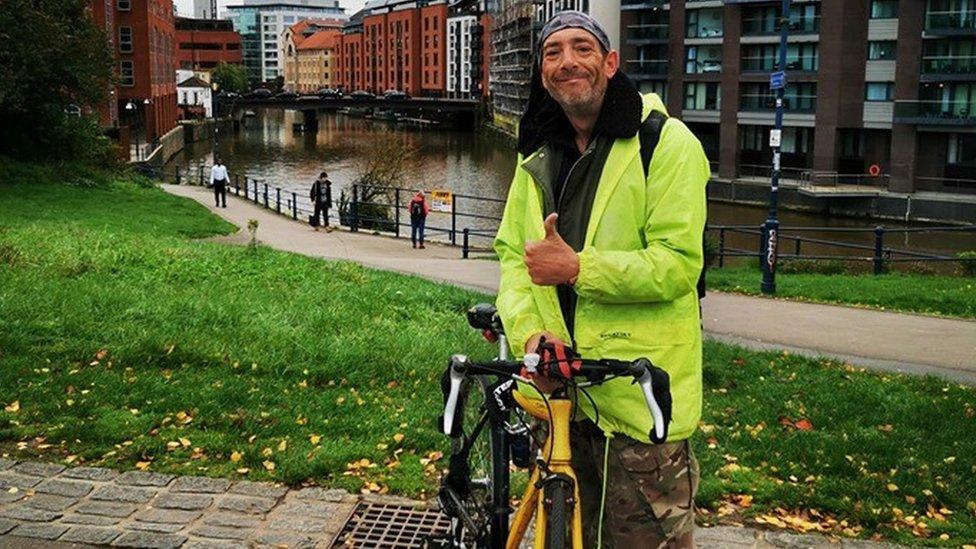Disabled people 'held back by ignorance' over direct payments
- Published
"Direct payments let me live a normal life"
Funding to allow disabled people to buy their own support is being held back by "ignorance", a campaigner has said.
More than 6,000 people receive direct payments, external which allow them to choose the support they need and who provides it.
But Vin West, chairman of Arfon Access Group, said some councils were "reluctant to give up control".
The Welsh Local Government Association (WLGA) said councils "promote the use of direct payments where appropriate".
Direct payments were introduced more than 20 years ago to give people greater choice and control and can be used instead of or as well as services commissioned by a local authority.
Councils in Wales spend about £50m on the payments each year.
Mr West told BBC Radio Wales' Eye on Wales: "It's been admitted to me by senior staff in a couple of authorities that they're still not always offering a direct payment.
"There are categories of people who it's deemed couldn't manage a direct payment - we're talking about people with mental health issues, people with cognitive impairments, older people - whole cohorts of people are being pre-judged which in most people's terms is called discrimination and they are not being offered direct payments.
"There's a level of ignorance, I'm afraid, in some local authorities that needs to be shifted."
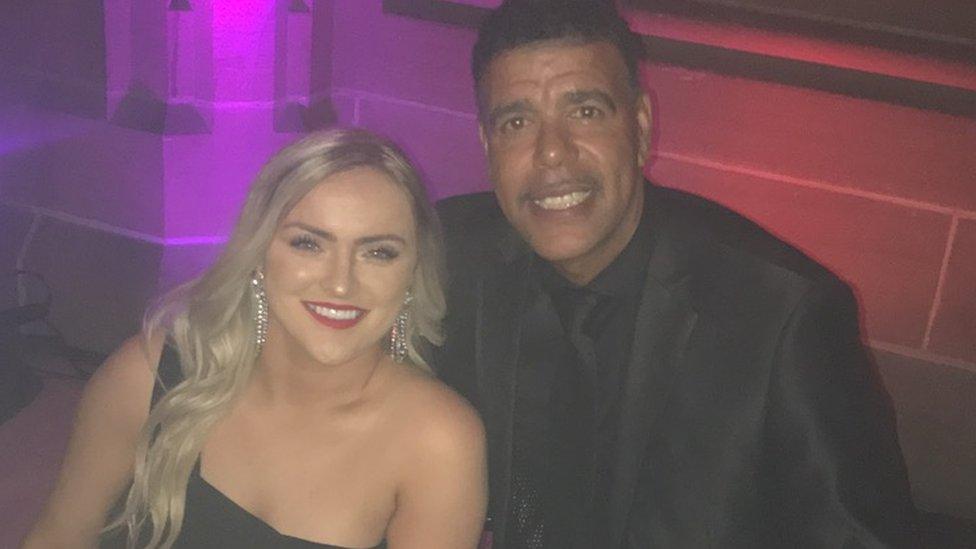
Helen Fincham - pictured with ex-footballer Chris Kamara - says direct payments mean she is no longer restricted
Helen Fincham, 24, was paralysed three years ago due to a neurological condition and uses a wheelchair.
She employs a personal assistant for 50 hours a week through a direct payment allowance provided by Bridgend council.
After leaving hospital, she was given two support workers who shared responsibility for visiting her for 30 minutes, four times a day.
"If anything that was the worst, my lowest point in my life. Not the actual injury itself - that's happened, I can't dwell on it, I'm over it. I'm sat in a chair. I just do things sitting down now.
"The problem is that I was restricted, I couldn't go anywhere, couldn't do anything, I was sitting around all day waiting for other people, strangers, 15 different people a day to come to help me just get by, which wasn't enough for me."
Ms Fincham said she only came to understand how direct payments could work for her after being contacted by a stranger on social media.
Bridgend council said it was satisfied it had "kept all relevant parties fully informed about the availability of direct payments" and was "confident that it has met its duties and responsibilities".
Ms Fincham said being able to choose her own care meant her life had "flipped like a coin" and enabled her to accept an invitation to a Buckingham Palace garden party, where she met Prince Charles.
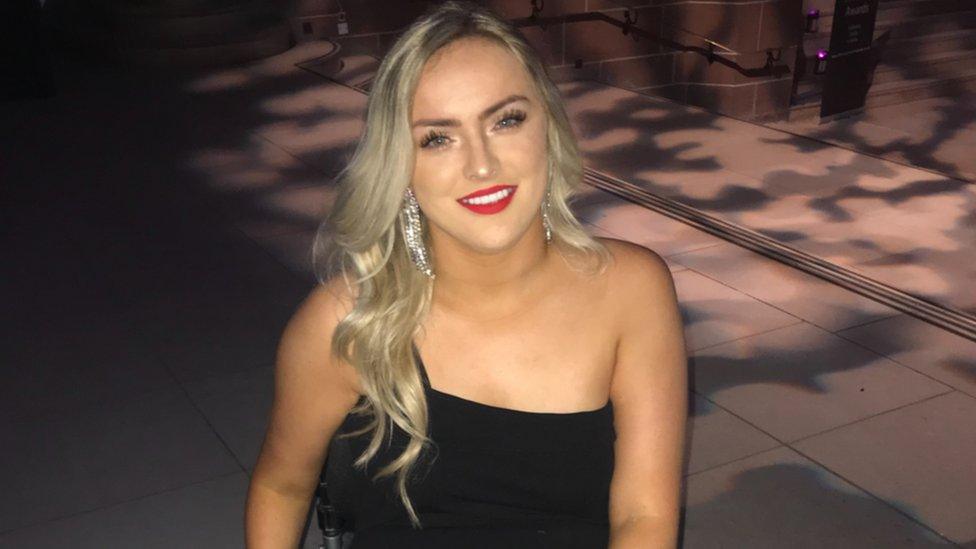
Helen Fincham was paralysed due to a neurological condition
Deputy minister for health and social services Julie Morgan said the Welsh Government had two projects under way to evaluate how direct payments were working and was "very keen to track how things are going".
"It is obviously essential that not only do local authorities tell people what their rights are, but explain what that means," she added.
The WLGA said: "Local authorities fully recognise the value that direct payments can provide to individuals who are eligible and who wish to access them.
"It is positive to see that the number of people receiving direct payments has increased since the Social Services and Well-being (Wales) Act 2014 came into force."
- Published23 January 2019
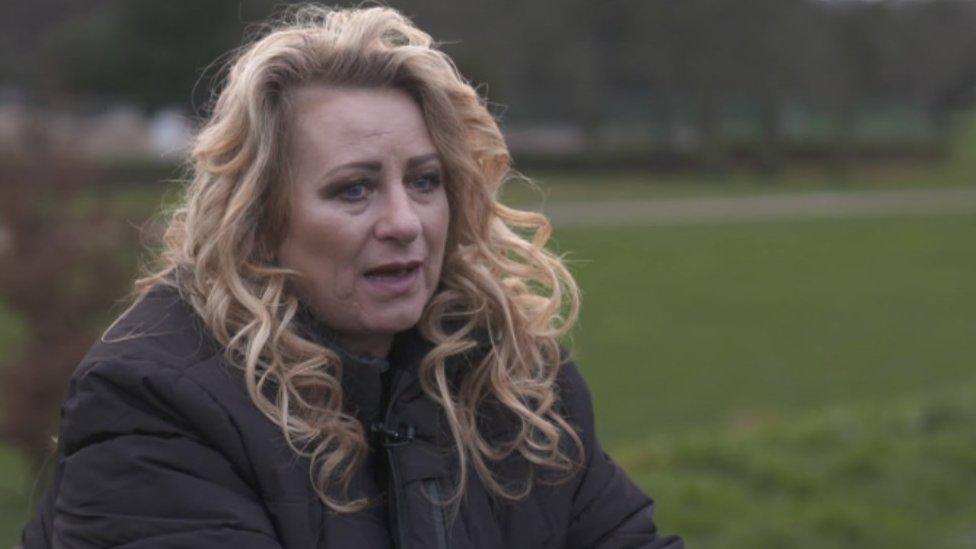
- Published13 September 2019
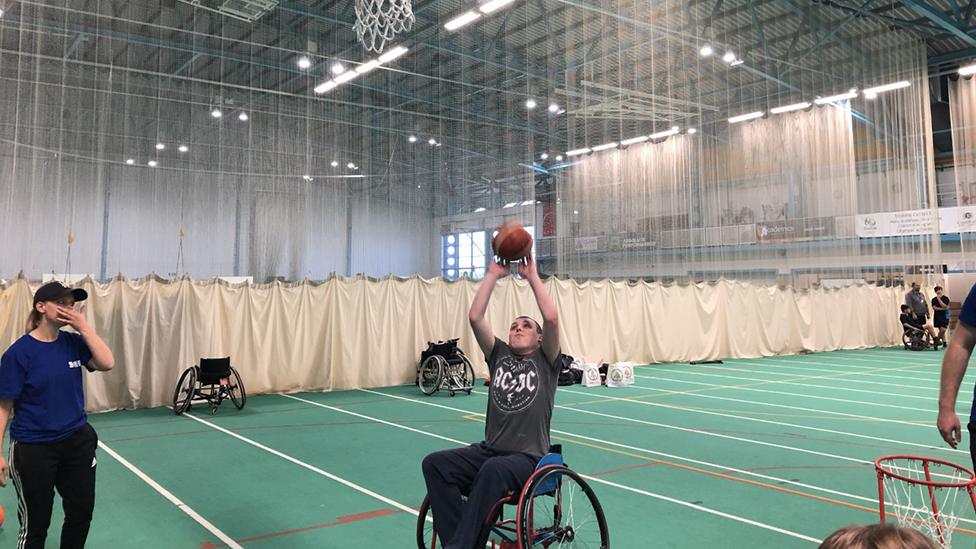
- Published18 October 2019
